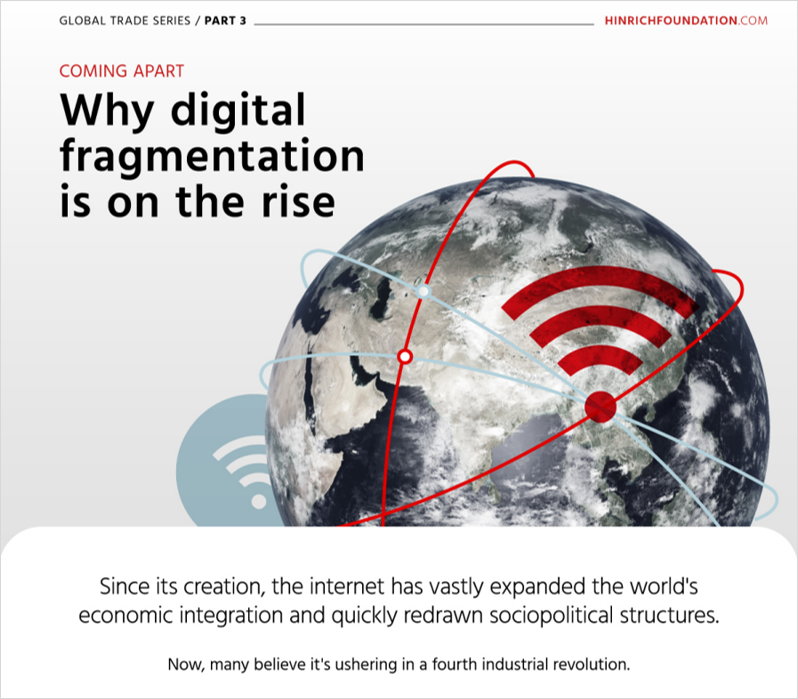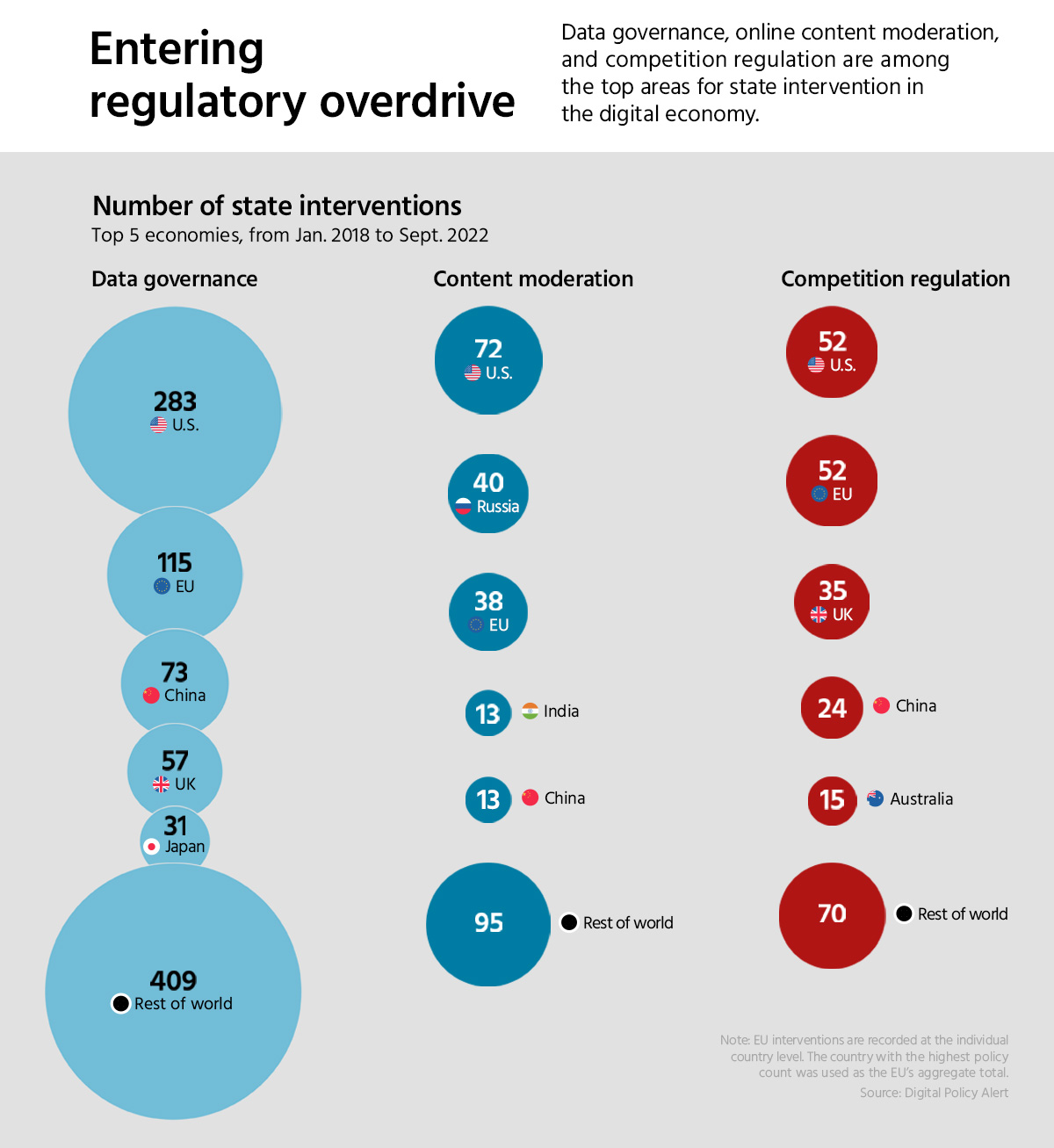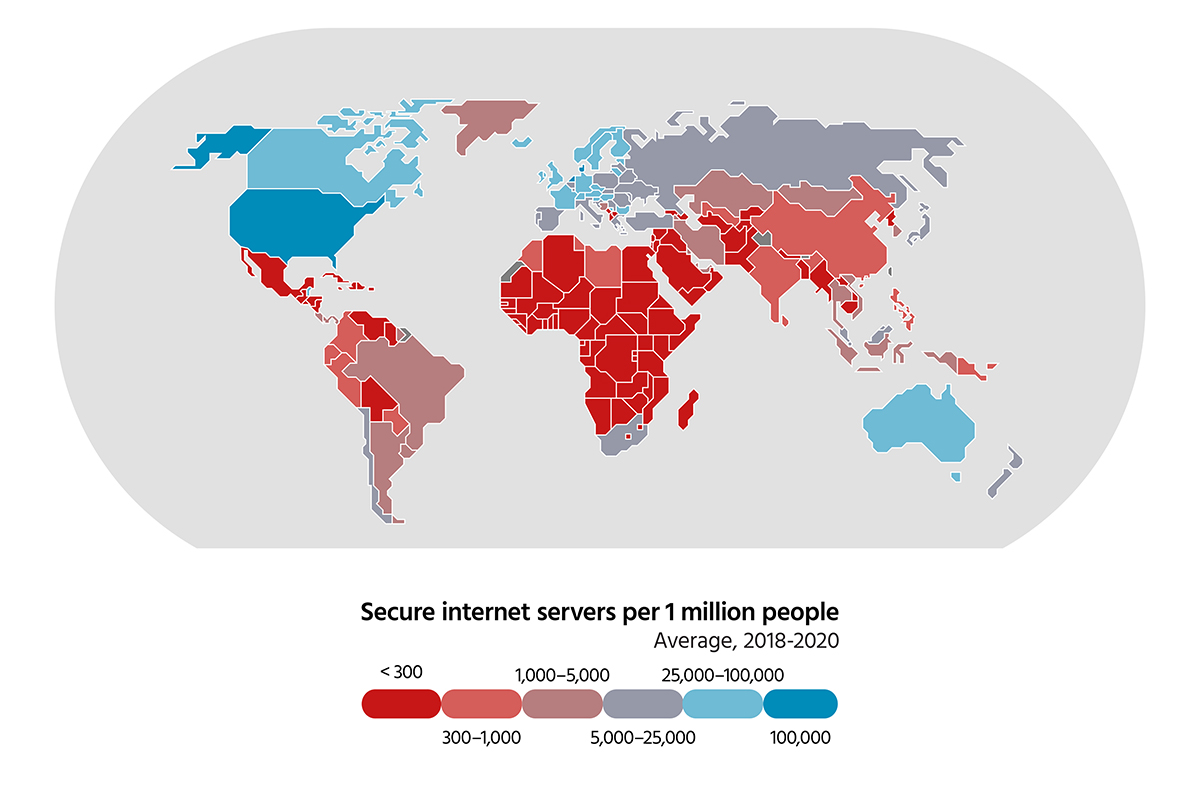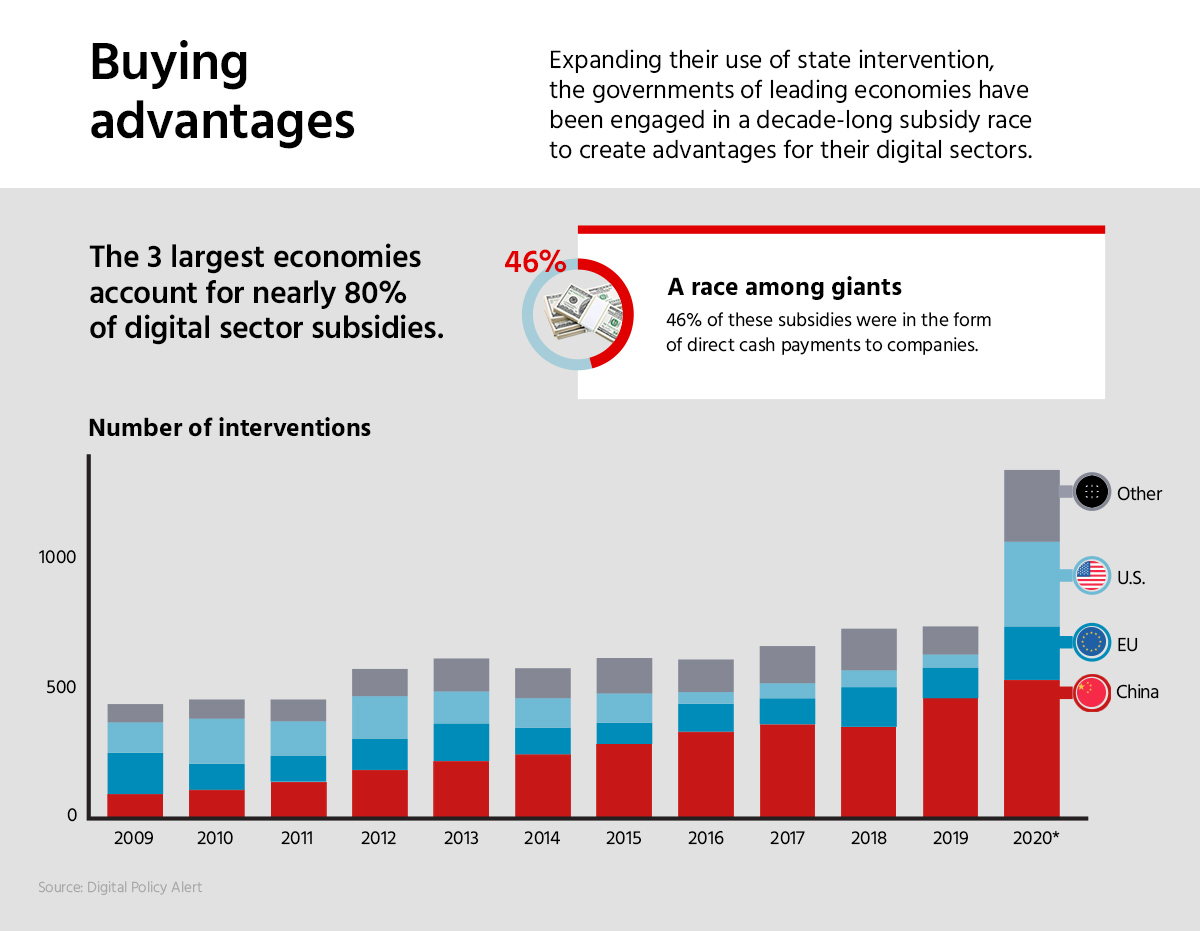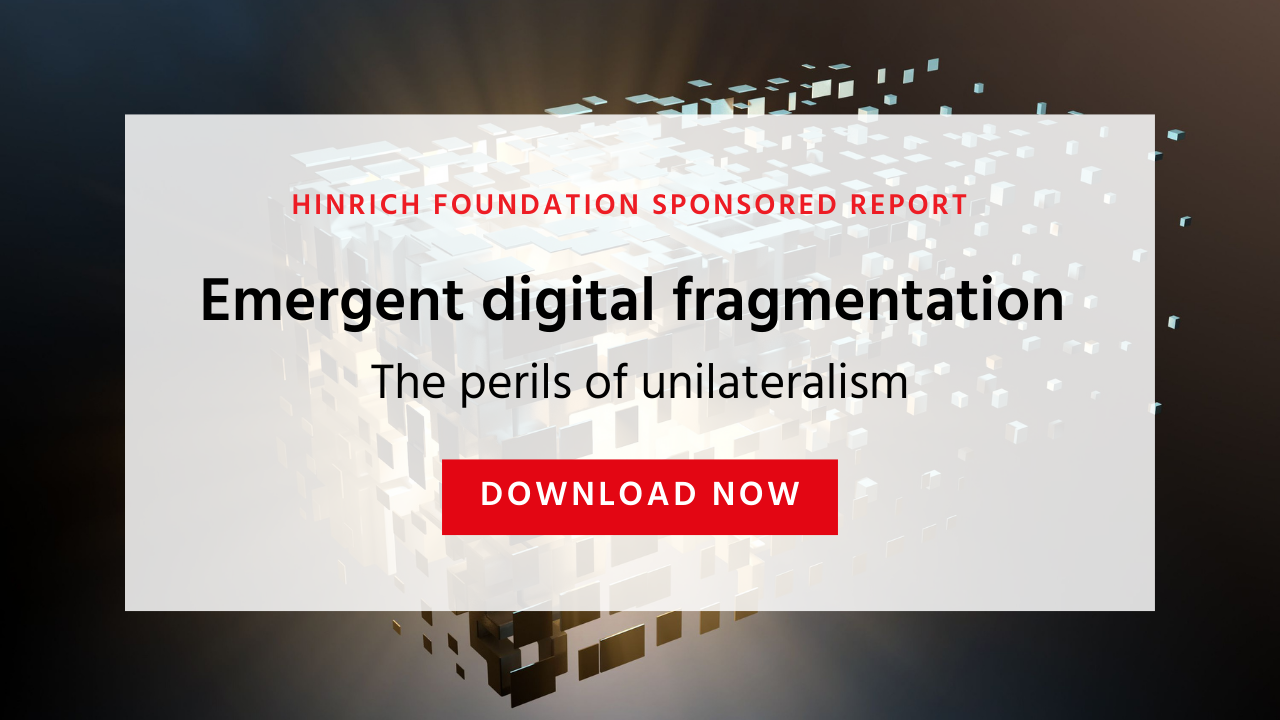Published 01 November 2022
The digital economy is inescapable, and, as is often the case, governments are turning to regulation to manage its complexities, according to recent findings by policy advisers Global Trade Alert and Digital Policy Alert. We asked data artists Visual Capitalist to reimagine the report’s key message: a warning on the consequences of regulatory intervention.
The internet was seen as a globally unifying medium at its inception. It ushered an industrial revolution that’s still underway. But there’s a big problem: the unifying medium is breaking apart.
As Simon Evenett and Johannes Fritz, pioneers of two unique global databases that track state interventions in the digital world, wrote in a June 2022 paper co-sponsored by the Hinrich Foundation:
“Governments have gone into regulatory overdrive in digital sectors since the start of 2020. Regulatory heterogeneity is growing, posing an ever greater risk of digital fragmentation. Commercial policy developments over the past decade have erected more and more barriers between national digital sectors. Subsidy races are breaking out in the digital economy.”
We asked the data artists Visual Capitalist to reimagine the messages of Evenett and Fritz’s report, which among other things discovered a preponderance of interventions being carried out among the biggest economies of the world. The interventions occur across sectors ranging from content moderation to data governance, meaning state control of cross-border data flows.
Policy incoherence at home coexists with international regulatory divergence, Evenett and Fritz say. And the mistakes matter: A fragmented internet and global digital economy deny users choice, reduce innovation, and exacerbate global tensions.
For all its role as a globally unifying medium, the world is getting more unequal in internet infrastructure. Measured by secure internet servers, a basis of protected communications and foreign trade and investment, disparities in access to adequate infrastructure are widening across the globe.
Compounding the market distortions, a subsidy race is underway among governments, most notably in the semiconductor sector.
The perils of unilateral governance action are becoming clearer, the report says. Officials around the world should pay attention to these developments if they want to regulate and nurture their digital sectors.
Featured publications:
Emergent digital fragmentation: The perils of unilateralism
No official institution has a global mandate to track policy intervention in the digital sphere. This information gap leads to poor decision-making as policy incoherence at home co-exists with international regulatory divergence. A fragmented internet and global digital economy deny users choice, diminish the incentives for innovation, and exacerbate trade tensions between governments. This 29th report by Global Trade Alert adopts a comprehensive view of the policies affecting the digital domain and their cross-border repercussions. Watch interviews of Deborah Elms and Jake Colvin, Executive Director at the Asian Trade Council and the Global Innovation Forum respectively, where they discuss the key challenges facing the policymakers in the digital domain.
© The Hinrich Foundation. See our website Terms and conditions for our copyright and reprint policy. All statements of fact and the views, conclusions and recommendations expressed in this publication are the sole responsibility of the author(s).


